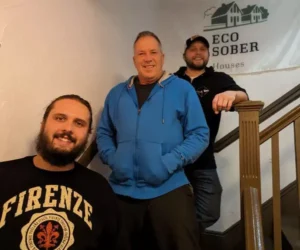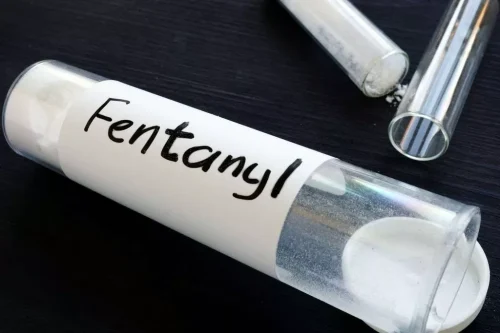How To Overcome The Challenges of Early Recovery

Finally, Participant 5 noted the impact of religion and spirituality duringtheir recovery. Specifically, Participant 5 has intensified religionpractices during their time in early recovery. He’s great.” In addition, Participant 5 also returns tothe support of their girlfriend during recovery. We are spending more and more time together and I’m happywith it. She supports me in every way.” In general, the previouslyestablished supports seem to be chosen because of the participants’anticipation of positive feelings/outcomes related to these activities.
- Success in recovery hinges on prioritizing emotional stabilization and setting realistic goals.
- Recovery from addiction is not a linear process, and increasingly, relapse is seen as an opportunity for learning.
- Leisure exploration is defined as “identifying interests, skills,opportunities, and leisure activities” (p. 34).9 Limitations of the researchinclude lack of generalizability due to qualitative methodology as well as thefocus of women.
- Whilst it is important to try and put matters straight as best you can, reliving the past will only serve to make you miserable and bring back those painful emotions.
- These stages not only lay the groundwork for long-term success but also establish the tone for the entire healing journey.
- If you go in the afternoon,you go every afternoon.” Participant 2 believes it is impossible to developa new routine in the absence of a consistent pattern.
We are Here to Help with Early Recovery

Now that you have manged to stop drinking and/or using, you may be thinking that the hard work is behind you. Complacency creeps in as you start to feel more comfortable in your sobriety. If you are receiving help or following a program of recovery, you will need to continue with this. Sobriety is all about maintaining what you have and continuing to grow in your personal development.
- Tailor these habits to your unique needs and preferences to create a sustainable path to lasting recovery.
- Dealing with life on life’s terms without drink and drugs can bring a whole host of emotions that before you would have numbed with the drug of your choice.
- If one of our articles is marked with a ‘reviewed for accuracy and expertise’ badge, it indicates that one or more members of our team of doctors and clinicians have reviewed the article further to ensure accuracy.
- Early recovery demands avoiding high-risk situations and environments that can trigger cravings.
- This isdue to the fact that during their previous episode, night time was when theywould spend most of their time drinking, which now affects their ability tofall asleep.
- The problem is a spiritual one, Jacob said, and it’s an addicted person’s “powerlessness” over alcohol or drugs, as the first step of the 12 Steps of Alcoholics Anonymous and Narcotics Anonymous puts it.
What is the Early Stage of Addiction Recovery?
Of that, the particularactivity was new 1 time (2.4%) and important 2 times (4.8%). If the participant didnot think that the activity fit into any of those categories, they could select“other” and write how they categorized the activity. Now that you are sober and clean, you may look to fill the gap in your life that drugs or alcohol filled.
Creating a Positive Environment for Early Recovery
Having free time and kind of getting bored and when I’m bored, iswhen I start thinking about using. Which sometimes is difficult but beinghere three times, a week help me a lot because I don’t have to thinkabout those three days and I only have Tuesdays and Fridays to thinkabout. So once I am out of here I have to go and look for other waysto fill the three nights. Over the course of 2 data collection sessions, a total of 14 individuals consented toparticipate in the study. Out of the 14 participants, 11 individuals consented toconsideration for an interview. Per protocol, 5 participants were randomly selectedamong the 11 who consented, and all interviews were conducted approximately 1 monthafter initial quantitative data collection.
Patience with oneself, the process, and the inevitable ups and downs can be a significant pillar of strength in your recovery journey. Imagine this emotional journey like riding on a rollercoaster of emotions. When you’ve been using harmful substances for reframing holidays in early recovery a while, they can become a way to cope with difficult feelings. So when you start the recovery process, your mind might not know how to handle those feelings without those substances. It’s like learning to walk again after a long time in a wheelchair.
Impact of rest and sleep in early recovery
Studies show that those who detour back to substance use are responding to drug-related cues in their surroundings—perhaps seeing a hypodermic needle or a whiskey bottle or a person or a place where they once obtained or used drugs. Such triggers are especially potent in the first 90 days https://ecosoberhouse.com/ of recovery, when most relapse occurs, before the brain has had time to relearn to respond to other rewards and rewire itself to do so. Learning what one’s triggers are and acquiring an array of techniques for dealing with them should be essential components of any recovery program.
Building personal resilience through self-awareness and positive reinforcement helps to counteract negative perceptions and maintain a focus on recovery. Regular journaling is a valuable practice for tracking progress and setbacks during recovery. This habit helps celebrate milestones like the first month of sobriety and provides a clearer understanding of triggers and coping mechanisms, ultimately fostering resilience and self-awareness. While the journey of early recovery can be fraught with challenges, embracing progress requires recognizing and celebrating even the smallest victories.

Otherwise, their behavior is at risk of cementing the problem in place. Roadblocks are inevitable in any journey, and the path to rehab is no exception. During the early stages of recovery, these obstacles might feel insurmountable. However, with determination, resilience, and the right strategies, these barriers can be overcome. It’s crucial to see these obstacles not as setbacks but as opportunities for growth and learning. When your body goes through detoxification, it’s not just your physical self that’s changing.
Relationships in Early Recovery
Starting the day with a brisk walk in the park, surrounded by nature, invigorates the senses and provides a simple yet profound connection to the environment. These steps are critical in fostering a supportive network that reinforces the recovery journey, making it possible to heal and rebuild a life marked by integrity and trust. Building a support network through group therapy and peer mentorship alleviates the sense of isolation and strengthens the resolve to stay on the path to recovery.



